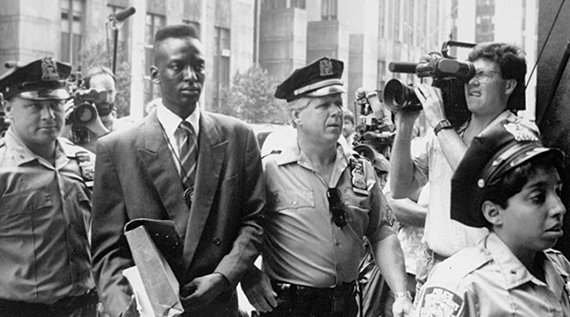Description from TIFF 2012 catalog by Thom Powers:
In 1989, five black and Latino teenagers from New York City were arrested and charged for brutally attacking and raping a white female jogger in Central Park. News media swarmed the case, calling it “the crime of the century.” Journalists popularized the term “wilding” to describe a gang activity of randomly assaulting victims. Politicians, pundits and the public rushed to a judgment that carried a barely veiled undertone of racial and class prejudice. Convicted of the crime, the five teenagers spent between five to thirteen years in prison until, in 2002, the shocking news broke: they were innocent. Another man confessed to the crime, with DNA evidence to support his claim.
How did such a miscarriage of justice take place under so much press and public scrutiny? Sarah Burns spent five years studying the case for her book The Central Park Five: A Chronicle of a City Wilding. Now she joins forces with her husband David McMahon and her father Ken Burns to bring the story to the screen, allowing each of the five wrongfully convicted men — Antron McCray, Kevin Richardson, Raymond Santana, Korey Wise and Yusef Salaam — to finally tell of their experience as the victims of a frenzied, city-wide mob mentality.
For Ken Burns, the story of the Central Park Five taps into the recurring theme of race in America that runs through his work, from The Civil War to Baseball to Jazz to Unforgivable Blackness: The Rise and Fall of Jack Johnson. While Burns is better known for his excursions into the deeper past, this film engages living memories and presents a taut narrative that commands a theatrical experience, and stands in contrast to his episodic television work. This story of how innocent men were scapegoated plays out like a suspense thriller. Their fate might have befallen anyone who had the wrong skin colour in the wrong place.
As viewers, we can’t attribute this travesty to a past generation. Instead, the case of the Central Park Five remains a mirror of our times.






